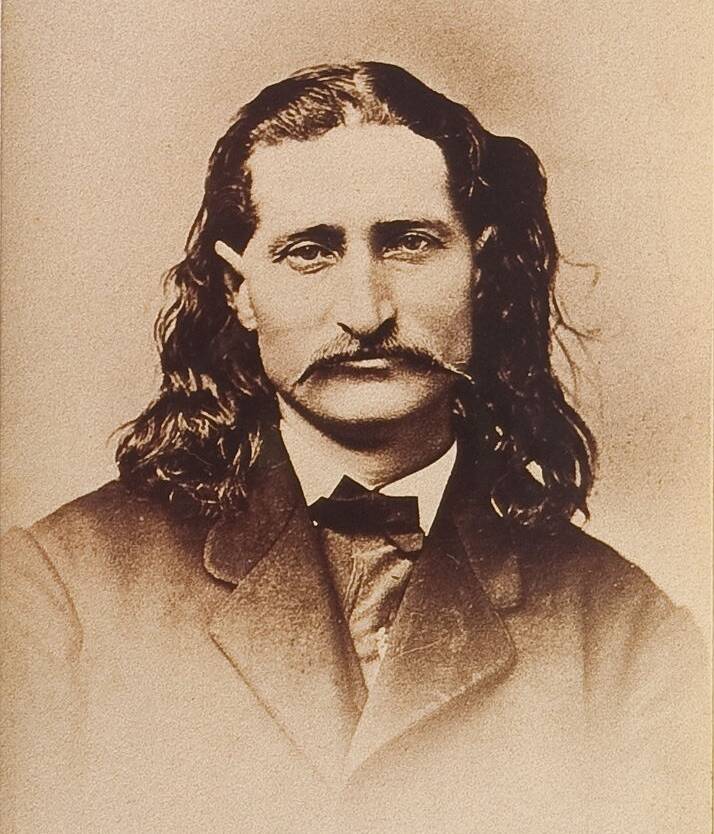“Wild Bill” Hickok And The “Dead Man’s Hand”

Public DomainWild Bill Hickok died after being shot in the back of the head while playing poker.
James Butler “Wild Bill” Hickok lived a truly wild life — but it arguably had an even more wild end. It was fitting, perhaps, for a man who embodied the spirit of the Wild West better than most others on the frontier.
Born on May 27, 1837 in Troy Grove, Illinois, he grew up in a family with a strong abolitionist stance, their home even serving as a station on the Underground Railroad. James’ father died when he was just 15, forcing him to take on the role of providing for the family. James Butler Hickok started hunting as a means to get by — and it turned out that he was pretty good at it. Even as a teen, he had earned a reputation for being a great shot.
In his later teenage years, Hickok moved to Kansas and joined up with a group of antislavery vigilantes known as “Jayhawkers” and worked as a bodyguard for General James Henry Lane. During this period, he also met William “Buffalo Bill” Cody, with whom he would remain friends for years.
At the outset of the Civil War, Hickok joined up with the Union as a teamster and spy — only to be attacked by a bear and injured, forcing him to sit out part of the war. While healing from his injuries, he was employed by the Pony Express and cared for stock at a facility in Rock Creek, Nebraska.
And there, in 1861, Wild Bill got his famous nickname. When a local bully named David McCanles showed up demanding funds from the station manager one day, McCanles hailed a personal insult at Hickok, calling him “Duck Bill” due to the shape of his nose and lips.
An argument ensued and quickly turned violent. It ended, allegedly, with Hickok pulling out a gun and shooting McCanles dead. Despite being brought to trial, Hickok was acquitted of all charges, and “Wild Bill” was born.

Public DomainAn 1873 cabinet card of Wild Bill Hickok.
Soon after, Hickok rejoined the Union Army and the Jayhawkers, and then spent his post-war years working as a lawman in various positions across the West. Sometimes, he courted controversy, like when he killed two men in just one month while working as a sheriff in Kansas.
In 1873, Hickok joined Buffalo Bill’s “Scouts of the Plains” show, which brought his various exploits to the stage. The perfomance might have seemed like an escape from the, well, wild lifestyle of the Wild West.
But for Hickok, the sedentary life didn’t stick. So, in 1876, hoping to find a fortune in the gold rush, Hickok arrived in Deadwood, Dakota Territory.
Unfortunately for him, he didn’t have much time to spend looking for gold, or to work as a peace officer as he had planned — because he would soon be murdered. On August 2, 1876, while playing poker at Nuttal & Mann’s Saloon, he was shot in the back of the head by Jack McCall, a known drunk who may have harbored a personal grudge after losing money to Hickok.
At the time of his death, Hickok reportedly held a pair of aces and a pair of eights — a combination that is now known as the “dead man’s hand.”





